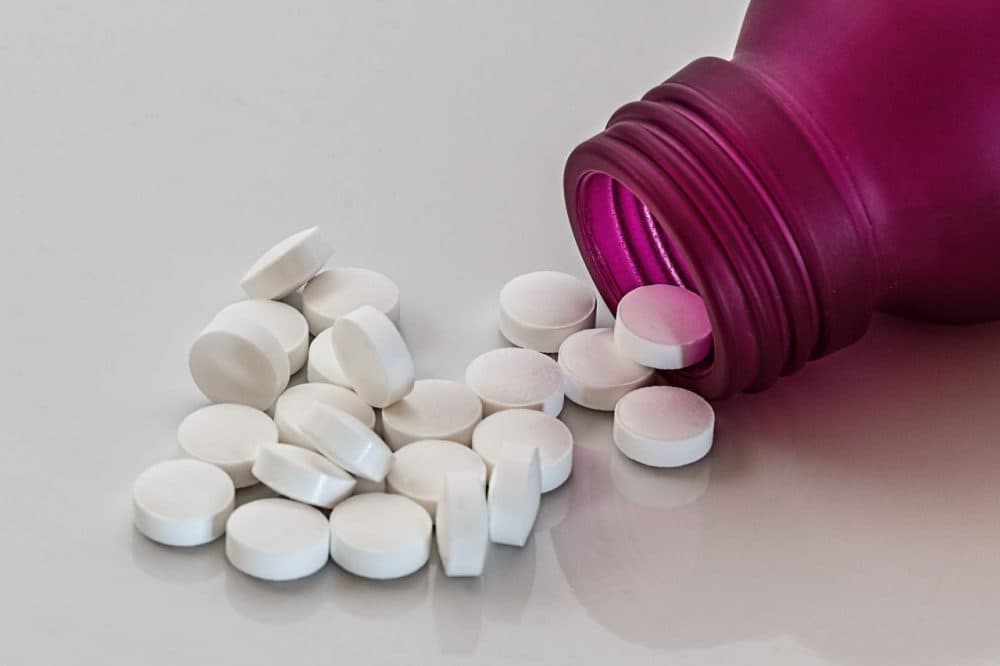Advertisement
Baker Tax Plan Would Hit Firms That Make Opioid Drugs

Gov. Charlie Baker's call to tax manufacturers of opioid medications represents the latest high-profile attempt by state leaders to hold pharmaceutical companies accountable in some part for the ongoing opioid addiction crisis.
Included in the Republican's proposed state budget is a 15 percent excise tax on sales of prescription opioids in Massachusetts. If approved by the Legislature, the tax would generate an estimated $14 million with the proceeds helping to "address the significant and growing state costs associated with opioid misuse," Baker wrote Wednesday in a letter to lawmakers.
Attorney General Maura Healey, a Democrat, is pursuing a lawsuit that accuses Connecticut-based Purdue Pharma, maker of OxyContin, with deceiving doctors and patients about the risks associated with opioids. While hundreds of lawsuits have been filed nationwide against drugmakers, Healey's complaint was the first by a state to specifically name owners and executives of Purdue Pharma.
The company has said it "vigorously" denies the allegations.
And in a separate, federal case, the founder and several former executives of Insys Therapeutics face trial in Boston on charges, brought by the Massachusetts U.S. attorney's office, that they offered cash to doctors in exchange for prescribing a highly addictive painkiller. The defendants deny committing any crimes.
More than 2,000 people died from opioid-related overdoses in Massachusetts both in 2016 and 2017, according to the state's public health agency. About 1,500 confirmed or suspected deaths were reported during the first nine months of 2018.
The national overdose epidemic has prompted more than a dozen other states to weigh taxes on drugmakers, but a court challenge sank a law enacted last year in New York.
Soon after Democratic Gov. Andrew Cuomo signed the Opioid Stewardship Act, which included a first-of-its-kind assessment on companies that sell or distribute opioids in the state, two industry groups and a pharmaceutical firm filed suit claiming the law was unconstitutional.
In a December ruling, U.S. District Judge Katherine Polk Failla wrote that while state officials should be commended for tackling the opioid crisis, "New York's interest in the public health of its residents cannot trump the Commerce Clause" of the U.S. Constitution. The state plans to appeal.
The Massachusetts proposal differs in several respects from the New York law. While Baker's plan calls for a uniform 15 percent excise tax on manufacturers, New York sought to raise $100 million annually by assessing each company a "ratable share" based on total sales or distribution of morphine milligram equivalents, an opioid dosage measurement.
More important, perhaps, Baker's bill wouldn't expressly prohibit pharmaceutical companies from passing on the cost of the tax to consumers in his state — as New York's law did.
The pass-through prohibition in New York violated the interstate commerce clause because it did not stop drugmakers from instead passing on the added costs from the law to people purchasing the drug anywhere else, the judge wrote in her decision.
Baker acknowledged that nothing in his proposal would stop companies from shifting costs to consumers.
"I can't do anything about how they actually run their books, but the manufacturers have a lot to do with creating a crisis that we all are paying for every day and creating a mechanism in which they put something in to help pay for the carnage they've created I think is important," he said.
The Association for Accessible Medicines, which represents makers of less expensive generic drugs and was a plaintiff in the New York case, opposes the Massachusetts bill.
"While [Baker's] proposed opioid tax is well-meaning, we are concerned that it will take away affordable medical treatment options for patients and health care professionals with legitimate medical needs," the industry group said in a statement.
The association did not say if it might consider challenging the measure in court.
Some smaller manufacturers would be exempted from the tax, as would drugs provided to hospital patients and medications used to treat opioid addiction.